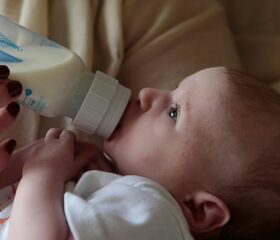How Much Does It Cost to Freeze Your Eggs?
Egg freezing is a wonderful way for women to fulfill their dreams of becoming mothers, but it comes at a price—literally.

Unfortunately, freezing your eggs isn’t cheap. The good news is that there are ways that might allow you to undergo the egg freezing process without breaking the bank.
We’ll explain how much egg freezing typically costs, what affects its price, whether insurance covers it, and where you can potentially find financial aid.
What is egg freezing?
Egg freezing lets women save their eggs for subsequent use in assisted reproductive treatments, such as in vitro fertilization (IVF).
A round (or “cycle”) of egg freezing involves: 1
- Injecting hormone shots to stimulate egg growth for 10–14 days
- Extracting unfertilized eggs from your ovaries with a minor 15–20 minute procedure
- Freezing the extracted eggs with liquid nitrogen within seconds (vitrification)
- Storing the frozen eggs in a facility until you want to retrieve them for conception
People also refer to this as egg banking, egg cryopreservation, and oocyte cryopreservation. 2
Why do women freeze their eggs?
Many women aren’t ready to have babies in their 20s (when they’re most fertile). Freezing them means they don’t have to worry about their egg quality and quantity declining, which usually accelerates after age 35. 3
Some women also freeze their eggs out of medical concerns. For instance, cancer treatments like radiation therapy and chemotherapy can cause infertility. 4 Women with cancer who want to have biological children in the future may freeze their eggs before undergoing treatment.
What is the best age for egg freezing?
To reiterate, you have more and healthier eggs when you’re younger. For better odds of conceiving with IVF later on, it’s best to freeze your eggs in your 20s or early 30s (when your egg quality and quantity are at their peak). 3
How much does egg freezing cost on average?
Egg freezing is notoriously expensive. On average, a single round of egg freezing costs about $16,000. Here’s how that breaks down:
- $11,000 in clinic fees
- $5,000 in medication fees 5
Note that the estimated amount doesn’t include storage fees, which often range between $500 and $1,000 per year. 5 There’s no two ways about it: if you don’t have outside financial help of some sort (like insurance that covers it), freezing your eggs can easily cost tens of thousands of dollars.
The more rounds you do and the longer you store your eggs, the heavier your bill will be. Note that the price for both egg freezing and storing can range widely from clinic to clinic and city to city (the cost is, as you can probably imagine, generally higher in expensive cities).
What factors affect the cost of egg freezing?
Your egg freezing bill might be higher or lower than other women you may have talked to, depending on these factors:
- Clinic and location
- Number of egg freezing rounds
- Medication type and amount
Let’s take a closer look at these factors below.
Clinic and location
Again, the price of egg freezing may fluctuate depending on your clinic and city. Don’t walk into the first clinic you come across; do your due diligence and compare the pricing structures of different clinics beforehand to find the best deal.
Like we said, egg freezing and storage generally costs more in cities with high living expenses, such as New York City, Los Angeles, and Boston. To give you an idea of the price difference, here’s a comparison chart of the average cost in NYC and the cost in a randomly chosen clinic in Jacksonville, Florida, as of June 2025: 5
Egg Freezing and Storing Fee Comparison Chart
| City | Egg freezing round | Annual storage fee |
|---|---|---|
| New York City | $17,773 | $1,100 |
| Jacksonville | $10,500 | $400 |
Note that some clinics will offer one year or more of free egg storage (including the Jacksonville clinic we just cited), saving you some money.
Medication type and amount
The type and dosage of fertility drugs that doctors prescribe differ based on each patient’s circumstances. This affects how much you’ll pay.
For instance, if your body produces fewer eggs, you might need a combination of several different medications and higher dosages to stimulate your ovaries.
Your cost may be higher than that of someone who only needs one type of medication and a lower dosage, especially if your lower ovarian follicle count (which you can find out through an antral follicle count test) causes your body to fail to respond to any of the medications (requiring you to cancel the procedure and repeat it later).
Number of egg freezing rounds
Egg freezing is a numbers game. The more eggs you can extract and freeze, the more likely you are to succeed in having a baby down the line.
By and large, if you’re young and healthy, you can extract more viable eggs in a single freezing round than women with lower ovarian reserves (either due to aging or an illness). This means you’ll likely need fewer rounds, which will significantly lower your bill.
Remember to factor in the cost of actually using your eggs
When you’re ready to have a baby, your doctor will thaw and fertilize your eggs, then transfer the embryos (fertilized eggs) to your uterus. These subsequent steps can cost up to $10,000 for a single transfer. You’ll also have to shell out more money if your transfer fails and you want to try again.
Do insurance plans cover egg freezing?
Most insurance plans don’t cover egg freezing for non-medical reasons (e.g., if you want to postpone pregnancy for the sake of your career). Even if you qualify, you may only receive partial coverage. The amount varies widely from plan to plan and insurer to insurer.
According to anecdotal reports, some of the better insurance plans cover all expenses (including appointments, medication, and surgeries) except for the actual egg freezing procedure and subsequent storage fees.
If your health insurer offers coverage, your plan may also limit the number of rounds you can do per year or have a maximum lifetime benefit amount.
State laws about egg freezing
As of April 25, 2025, 22 states and Washington, DC have passed fertility insurance coverage laws. 6 They require insurance companies to cover some form of fertility treatment (which sometimes includes egg freezing) for eligible infertile women.
Check out The National Infertility Association’s Insurance Coverage by State page to find out if you’re covered by state law. If you have employer-sponsored insurance, you can also ask your company’s HR if your policy offers fertility benefits.
Financial assistance for egg freezing
Many people don’t have comprehensive insurance coverage and can’t afford to freeze their eggs. If you’re one of them, consider exploring these financial relief options:
- Fertility clinic programs: Some clinics offer payment plans or package deals for multiple cycles. For example, Shady Grove Fertility, a nationwide fertility clinic, offers monthly payment plans that start at $200 per month. You typically need an initial consultation and testing to determine which package deals you qualify for (if any).
- Grants and foundations: Several non-profit organizations offer scholarships and grants for fertility treatment. They often pay a few thousand dollars per applicant, and may have eligibility requirements, like having an infertility diagnosis or being part of a same-sex couple.
- FSAs/HSAs: If you have a flexible spending account (FSA) or health savings account (HSA), they might be able to reimburse parts of your fertility treatment, including egg freezing. The coverage amount may be limited to how much you contribute to your HSA or HSA account. 78
International IVF travel
If you’re interested in IVF but are worried about the financial strain, you may be able to undergo the procedure more cheaply abroad. Daniel Gomez, an OB/GYN who practices in south Florida, told Glow that in his area, “a large number of patients will travel to IVF centers around the world because the cost is significantly less for embryo harvest and storage,” which also goes for IVF fees in general.
“Most of my patients who reside in Florida undergo treatments in Colombia at a reputable center,” said Dr. Gomez, before adding a cautionary note: “Not every international IVF clinic is as reputable or reliable, so this can definitely carry some risk.”
Final thoughts
Freezing your eggs isn’t cheap, but many people who want to start a family in the future (and not now) find it a worthwhile investment.
Whether you have a fertility-related illness or life plans that are currently in the way of having kids, egg freezing offers you an alternative route to becoming a parent.
Article Sources
- University of Utah Health. "Egg Freezing" Retrieved July 31, 2025.
- National Cancer Institute. "Egg freezing" Retrieved July 31, 2025.
- American College of Obstetricians and Gynecologists. "Having a Baby After Age 35: How Aging Affects Fertility and Pregnancy" Retrieved July 31, 2025.
- National Cancer Institute. "Female Fertility and Cancer Treatment" Retrieved July 31, 2025.
- FertilityIQ. "The Costs of Egg Freezing" Retrieved July 31, 2025.
- Resolve. "About Insurance Coverage" Retrieved July 31, 2025.
- FSAFEDS. "Eligible Health Care FSA (HC FSA) Expenses" Retrieved July 31, 2025.
- HealthComp. "Eligible Expenses for FSA/HRA" Retrieved July 31, 2025.







